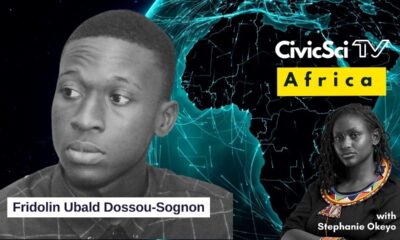Stories in Science Special Series
Be your own Cartographer
Divya Shiroor: “I think of the IDP as a roadmap to the destination of your choice, with the difference being that you build your own road as you go along. It is a tool that helps assess which career you might best enjoy, what skills would be required, and ultimately what goals should be achieved to procure these skills.”

Divya Shiroor
[su_boxbox title=”About”]Divya Shiroor is vet grad student at Cornell University. She is a foodie, dancer, bookworm, blogger, dog mom, and twin! The story below was written when she was a 1st year graduate student and published in the NIH BEST Blog. You can follow Divya on Twitter @DivyaShiroor. Cover image by Dariusz Sankowski from Pixabay.[/su_boxbox]

Divya Shiroor
[dropcap]A[/dropcap]s someone with a rather lacking sense of direction, the GPS is an invention I am most thankful for. If it wasn’t for google telling me when I should make the next right turn, I’d spend a large amount of time hopelessly lost. While I can trust google to keep me on track geographically, I can’t see it making sure I don’t drift off on the wrong road professionally. The onus of that, terrifyingly, rests solely on my shoulders. So how can I keep my professional compass pointing due north? My quest to identify my ideal career lead me to a workshop that talked about creating an individual development plan. A big fan of making to-do lists, I was intrigued, and signed up immediately.
On the day of the workshop, the first thing I realized was that I was one of only two first year grad students, in a crowd dominated by post-docs. In my eagerness to sign up, I had failed to see that the program principally targeted a more experienced crowd. Having said that, I am extremely thankful for my participation. While many individual development plans or IDPs do focus on post doctoral careers, I personally think that they are just as applicable to graduate students. Participating in the workshop taught me a great deal about this very useful tool, and by the end of this blog, I hope that you will be able to appreciate its value as much as I do.
I think of the IDP as a roadmap to the destination of your choice, with the difference being that you build your own road as you go along. It is a tool that helps assess which career you might best enjoy, what skills would be required, and ultimately what goals should be achieved to procure these skills. When I signed up for the workshop, I felt like this was all pretty straightforward. I could not have been more mistaken! While going through the worksheet we were provided with, I realized that there were a lot of things I had never thought about. I had to do a significant amount of soul searching to come up with answers to some seemingly simple questions.
While numerous websites have varied resources to design an IDP, they all principally cover the same categories. In this blog I will break down the IDP based on the way it was done for us at the workshop. While the sequence might not be the same on all websites, they should all cover roughly the same ground.
The first part of the IDP consists of assessing skills that one already possesses. To me, this was a real eye-opener! Most of us think of skills in a very tangible manner. I had restricted my skills to being very technical, like operating on mice or acing a particular technique. I learnt that this is a very myopic way of looking at skills. While technical or research skills are important, these are not the only skills we possess. Did you know, for example, that reliability is a skill? Or that the ability to give constructive feedback, network or even delegate responsibility are all considered valuable skills? We often tend to sell ourselves short, just by being unaware of all that we have to offer. I had just realized the first advantage of going through this exercise.
An integral part of the IDP is your mentor. Your mentor will be the one riding shotgun on your journey and their involvement is vital to the successful completion of your IDP.
The next part consists of categorizing various scientific tasks based on interest. This is done in order to identify potential career paths that could be a good fit. I recognized, for example, that I really enjoy designing and performing experiments and also speaking about science to non-scientists. So careers which have these components as a part of every day life will work best for me.
The third part of the exercise involves setting precise goals to develop skills required for said career(s). They showed us a very clever acronym to ensure that we set up attainable goals. Whenever you think of a goal, it should be SMART. S-specific and sensible, M- measurable, A-action oriented, R-relevant and T– time bound. The acronym significantly simplifies formulating a goal.
The final portion of the IDP is becoming aware of the resources available to attain your goals. This could be a person, or maybe a department, or a workshop or seminar.
An integral part of the IDP is your mentor. Your mentor will be the one riding shotgun on your journey and their involvement is vital to the successful completion of your IDP. Regular meetings with your mentor discussing your goals will ensure that you stay on the right track.
If you would like to embark on this journey and build a career roadmap, there are numerous websites that have very comprehensive questionnaires. I personally really liked this science careers assessment, though there are a number of other resources such as this and this. Another effective way would be to simply google “Individual Development Plan”
On a parting note, regardless of the career path you embark on, the fear of crashing and burning is very real. I’ve come up with some life hacks for myself, that will not only help me survive, but thrive in todays crazy world.
- In addition to your career goals, have a goal(s) outside of your career: As scientists, we encounter failure on a daily basis. It’s important to have goals in other areas that give you a sense of achievement. Remember Jack? The all work and no play guy?
- Establish a network of people that will support you: This is probably the most crucial part of grad school. It is important to establish a circle of trust, people you can count on to tell you right from wrong and that support your career.
- Don’t be afraid to stand out: When I was the only first year grad student in a group of post docs, I had half a mind to bolt. If it wasn’t for the lasagna they served, I probably would have bolted. But I’m glad I stayed. Not only did I learn a great deal, I also interacted with a group of really great post-docs. So as you embark on your journey, don’t be afraid to stand out.
Bon voyage!
Metrics
Sessions
Total number of Sessions. A session is the period time a user is actively engaged with the page.
Visitors
Users that have had at least one session within the selected date range. Includes both new and returning users.
Page views
Pageviews is the total number of time the article was viewed. Repeated views are counted.
The CS Media Lab is a Boston-anchored civic science news collective with local, national and global coverage on TV, digital print, and radio through CivicSciTV, CivicSciTimes, and CivicSciRadio. Programs include Questions of the Day, Changemakers, QuickTake, Consider This Next, Stories in Science, Sai Resident Collective and more.

-
 Audio Studio1 month ago
Audio Studio1 month ago“Reading it opened up a whole new world.” Kim Steele on building her company ‘Documentaries Don’t Work’
-
Civic Science Observer1 week ago
‘Science policy’ Google searches spiked in 2025. What does that mean?
-
Civic Science Observer1 month ago
Our developing civic science photojournalism experiment: Photos from 2025
-
Civic Science Observer1 month ago
Together again: Day 1 of the 2025 ASTC conference in black and white
Contact
Menu
Designed with WordPress
























